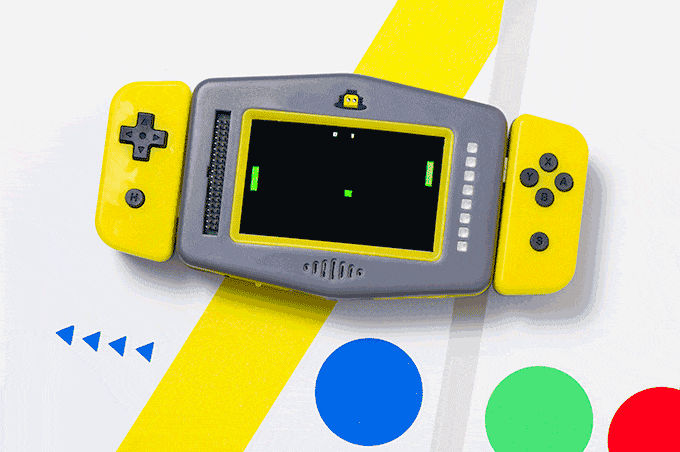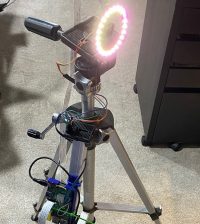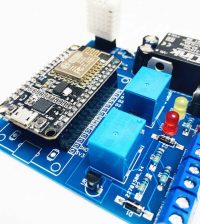- How to Adjust X and Y Axis Scale in Arduino Serial Plotter (No Extra Software Needed)Posted 2 months ago
- Elettronici Entusiasti: Inspiring Makers at Maker Faire Rome 2024Posted 2 months ago
- makeITcircular 2024 content launched – Part of Maker Faire Rome 2024Posted 5 months ago
- Application For Maker Faire Rome 2024: Deadline June 20thPosted 6 months ago
- Building a 3D Digital Clock with ArduinoPosted 11 months ago
- Creating a controller for Minecraft with realistic body movements using ArduinoPosted 12 months ago
- Snowflake with ArduinoPosted 12 months ago
- Holographic Christmas TreePosted 12 months ago
- Segstick: Build Your Own Self-Balancing Vehicle in Just 2 Days with ArduinoPosted 1 year ago
- ZSWatch: An Open-Source Smartwatch Project Based on the Zephyr Operating SystemPosted 1 year ago
Pip: Invent, Tinker and Make With Real Code and Hardware!

A new Kickstarter project called Pip appears to be an interesting “game” for every child hacker.
It has that familiar Switch form factor, with a touchscreen in the middle and detachable controllers on the sides, but inside the machine is a totally open Raspberry Pi.
It can run Minecraft — the preferred method of relaxation for any child hacker — and you can make your own games on it, which is what really counts.
At the heart of Pip is a Raspberry Pi Compute Module 3 Lite. The module is compatible with typical Pi software and exposes the regular 40 pin header for hooking up to external hardware, but allows for a more compact and battery-friendly mobile device than the typical 3D printed case. There’s also an 800 x 480, 4-inch touchscreen, a couple of USB ports, and HDMI out.
Pip comes with a custom programming tool called Curiosity which you can access through Wi-Fi from a “real” computer’s web browser to do all your coding. Curiosity supports Python, Lua, and drag-and-drop Google Blockly coding, along with PHP for some reason.
Curiosity has built-in functions to create games and explore interactive hardware (there’s an optional Pip Breadboard Kit, and some versions of Pip include a built-in camera). An emulator lets you test out your code in the browser, and then you can save it to the Pip once it’s ready for use in the wild.
You can also just swap out the included SD card for a traditional Raspbian Linux distro and use Pip like a regular Pi.
Pip is supposed to ship in August of 2018 with an Early Bird price of £150 (about $197 USD).















